
This thread is
Chapter 52, titled,
“The Womb—The Holy Grail”
of *Dance of the Seven Veils II*:
*Prenatal/Perinatal Psychology, Mythology, & Your Divine Self*
*Infant to Prenate, Veils Four-Six*
by Michael Adzema
THREAD sillymickel.blogspot.com/2023/03/the-wo… #myth #psychology
D7V2 52/1
Chapter 52, titled,
“The Womb—The Holy Grail”
of *Dance of the Seven Veils II*:
*Prenatal/Perinatal Psychology, Mythology, & Your Divine Self*
*Infant to Prenate, Veils Four-Six*
by Michael Adzema
THREAD sillymickel.blogspot.com/2023/03/the-wo… #myth #psychology
D7V2 52/1

[D7V2] Which is Volume 3 in The Path of Ecstasy Series*
.
Chapter 52 is subtitled,
“Immortality & the Feminine...
“Our Prenatal & Perinatal Experiences Separate Us from Divinity & Predispose Our Motivations, Quests, & Prejudices”
… wp.me/p2cSxz-cj #myth
D7V2 52/2
.
Chapter 52 is subtitled,
“Immortality & the Feminine...
“Our Prenatal & Perinatal Experiences Separate Us from Divinity & Predispose Our Motivations, Quests, & Prejudices”
… wp.me/p2cSxz-cj #myth
D7V2 52/2

“[*Quotes/highlights:*] “In the womb there was a knowledge of one’s immortality, in the sense of past lives. We already live forever, are immortal; but healing the prenatal trauma makes us aware that we are.” []
READ/DWL CH… drive.google.com/file/d/1QX_OJ1… #myth #psychology
D7V2 52/3
READ/DWL CH… drive.google.com/file/d/1QX_OJ1… #myth #psychology
D7V2 52/3
[]“…it is only with birth, technically just prior to birth in the latest stage of gestation, that we come up with the idea of death. For it is in being confronted w that prenatal & perinatal pain that we forget our prenatal state of bliss…”[]
sillymickel.blogspot.com/2023/03/the-wo…
D7V2 52/4

sillymickel.blogspot.com/2023/03/the-wo…
D7V2 52/4


[] “…& contentment earlier in our womb experience where, also, we could still remember our past lives & our identity with Divinity & hence, in either case, our immortality.” []
READ CH… wp.me/p2cSxz-cj #myth #psychology #womb #HolyGrail #birth #immortality
D7V2 52/5
READ CH… wp.me/p2cSxz-cj #myth #psychology #womb #HolyGrail #birth #immortality
D7V2 52/5

“[*Chapter 52 text begins:*] “Allow me a little aside which will reveal more elements of this. Compare this Eden myth with its Tree of Life to the myth of the Holy Grail.”
READ/DWL CH… drive.google.com/file/d/1QX_OJ1… #myth #psychology #womb #HolyGrail #birth #immortality
D7V2 52/6
READ/DWL CH… drive.google.com/file/d/1QX_OJ1… #myth #psychology #womb #HolyGrail #birth #immortality
D7V2 52/6
“*The Holy Grail & Prenatal Immortality*”
READ &/or dwnld entire CH free AT SITE... sillymickel.blogspot.com/2023/03/the-wo… #myth #psychology #womb #HolyGrail #birth #immortality #consciousness #mythology #prenatal #primal #placenta #symbolism #Eden #perinatal #feminine #BPMI #women
D7V2 52/7

READ &/or dwnld entire CH free AT SITE... sillymickel.blogspot.com/2023/03/the-wo… #myth #psychology #womb #HolyGrail #birth #immortality #consciousness #mythology #prenatal #primal #placenta #symbolism #Eden #perinatal #feminine #BPMI #women
D7V2 52/7


“It is interesting that, in the Grail being shaped like a chalice or cup, it is also shaped like a placenta or tree & it is also, in being something we drink from, something that gives us nourishment, as the placenta did.”
THREAD wp.me/p2cSxz-cj #myth #psyche
D7V2 52/8


THREAD wp.me/p2cSxz-cj #myth #psyche
D7V2 52/8

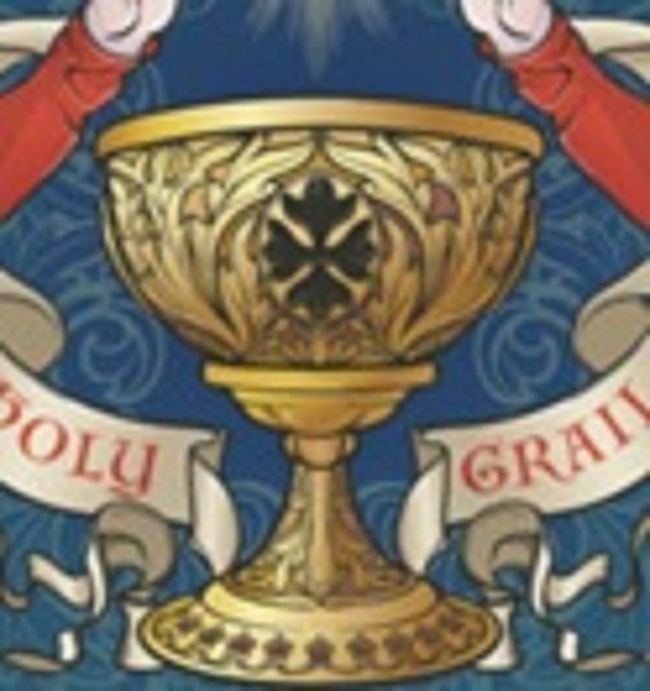

“Additional understandings of *grail* are equally provocative. It is written: “The word *grail*, as it is earliest spelled, comes from Old French *grail* or *greal*, cognate with Old Provençal *grazal*…”
THREAD… drive.google.com/file/d/1QX_OJ1… #myth #psyche #womb #HolyGrail
D7V2 52/9
THREAD… drive.google.com/file/d/1QX_OJ1… #myth #psyche #womb #HolyGrail
D7V2 52/9
“…& Old Catalan *gresal*, meaning ‘a cup or bowl of earth, wood, or metal’ (or other various types of vessels in different Occitan dialects).””
THREAD sillymickel.blogspot.com/2023/03/the-wo… #myth #psychology #womb #HolyGrail #birth #immortality #consciousness #mythology #prenatal
D7V2 52/10


THREAD sillymickel.blogspot.com/2023/03/the-wo… #myth #psychology #womb #HolyGrail #birth #immortality #consciousness #mythology #prenatal
D7V2 52/10



“”The most commonly accepted etymology derives it from Latin *gradalis* or *gradale* via an earlier form, *cratalis*, a derivative of *crater* or *cratus*, which was, in turn, borrowed fr Greek *krater* (*κρατήρ*, a large wine-mixing vessel).”
wp.me/p2cSxz-cj
D7V2 52/11
wp.me/p2cSxz-cj
D7V2 52/11

““Alternative suggestions include a derivative of *cratis*, a name for a type of woven basket….” With such etymological roots, note also its relation to the word, *cradle*.”
READ/DW CH… drive.google.com/file/d/1QX_OJ1… #myth #psychology #womb #HolyGrail #birth #immortality
D7V2 52/12
READ/DW CH… drive.google.com/file/d/1QX_OJ1… #myth #psychology #womb #HolyGrail #birth #immortality
D7V2 52/12
“Any vessel—cup, bowl, basket...cradle—is a symbol of the womb, in that it is something that carries, contains, constrains, & protects something.”
READ &/or dwnld entire CH free AT SITE... sillymickel.blogspot.com/2023/03/the-wo… #myth #psychology #womb #HolyGrail #birth #immortality
D7V2 52/13

READ &/or dwnld entire CH free AT SITE... sillymickel.blogspot.com/2023/03/the-wo… #myth #psychology #womb #HolyGrail #birth #immortality
D7V2 52/13


“Indeed, traditionally in Christianity, Mary the mother of Jesus is referred to as the “vessel of Christ.” She carried Jesus in her womb & was thus the container that enclosed & protected...she was the vessel for him.”
THREAD wp.me/p2cSxz-cj #myth #psychology
D7V2 52/14
THREAD wp.me/p2cSxz-cj #myth #psychology
D7V2 52/14

“Beyond this, vessels & cups in general can be said to be reminiscent of the womb & to be womb shaped.
“Notice, incidentally, how often glasses, cups, & goblets have feminine curves; they are shaped somewhat like a woman or a womb.”
THREAD… drive.google.com/file/d/1QX_OJ1…
D7V2 52/15
“Notice, incidentally, how often glasses, cups, & goblets have feminine curves; they are shaped somewhat like a woman or a womb.”
THREAD… drive.google.com/file/d/1QX_OJ1…
D7V2 52/15
“You think there is nothing strange about that? However, think for a second why these items would not be predominantly cylindrical, square, or even conical, as would be the logical & practical shape for them.”
READ CH… sillymickel.blogspot.com/2023/03/the-wo… #myth #psychology #womb
D7V2 52/16

READ CH… sillymickel.blogspot.com/2023/03/the-wo… #myth #psychology #womb
D7V2 52/16


“For in making them curvy, *chuckle*, if you will, we overrule the steadiness & resistance to spillage which would come with the larger base of a more obvious cylindrical shape...or square or conical one, for that matter.”
THREAD wp.me/p2cSxz-cj #myth #psyche
D7V2 52/17
THREAD wp.me/p2cSxz-cj #myth #psyche
D7V2 52/17

“& if your response is that such curvular shapes are aesthetic, poetic flourishes, or that they have something to do with the comfort or practicality of holding the vessel & drinking from it,..”
READ/DWL CH… drive.google.com/file/d/1QX_OJ1… #myth #psychology #womb #HolyGrail
D7V2 52/18
READ/DWL CH… drive.google.com/file/d/1QX_OJ1… #myth #psychology #womb #HolyGrail
D7V2 52/18
“…then you have to concede the great extent to which our sentiments around aesthetics, poetry,& even comfort & practicality, are modeled on the feminine.”
THREAD sillymickel.blogspot.com/2023/03/the-wo… #myth #psychology #womb #HolyGrail #birth #immortality #consciousness #mythology
D7V2 52/19



THREAD sillymickel.blogspot.com/2023/03/the-wo… #myth #psychology #womb #HolyGrail #birth #immortality #consciousness #mythology
D7V2 52/19
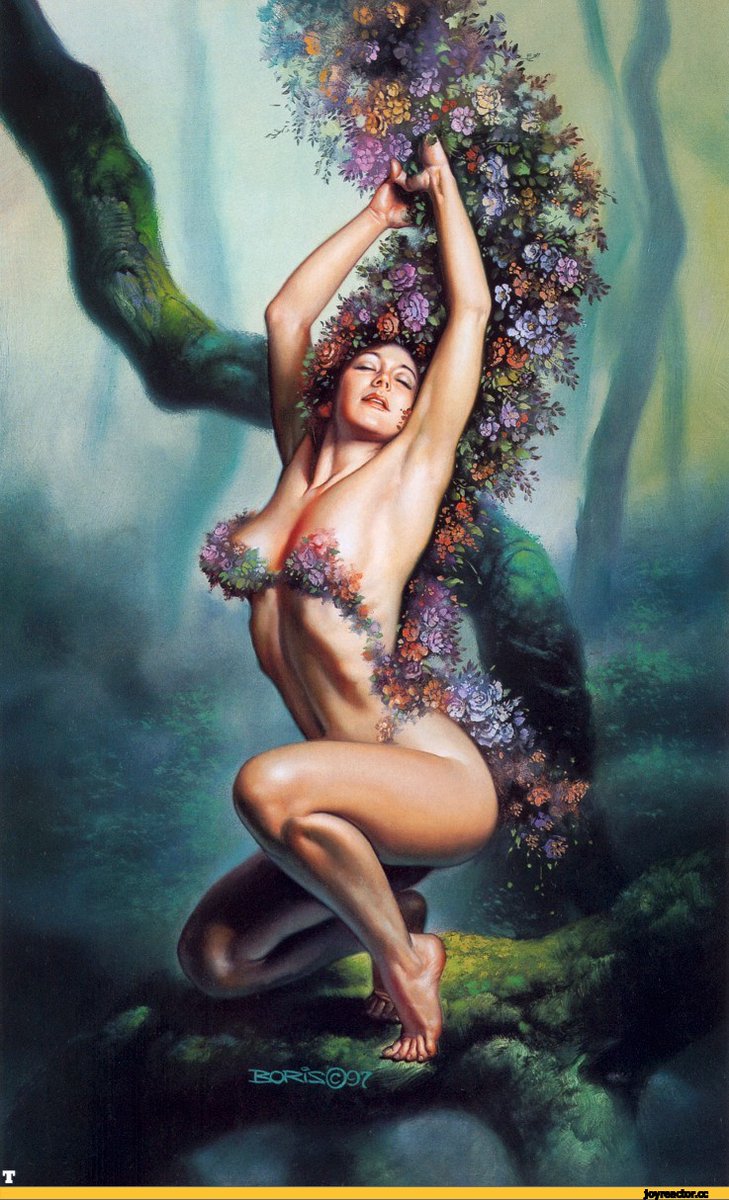



“Which means our ideas of such aesthetic niceties are created out of our early experience with the feminine, in the womb & postnatally.”
THREAD wp.me/p2cSxz-cj #myth #psychology #womb #HolyGrail #birth #immortality #consciousness #mythology #prenatal #primal
D7V2 52/20
THREAD wp.me/p2cSxz-cj #myth #psychology #womb #HolyGrail #birth #immortality #consciousness #mythology #prenatal #primal
D7V2 52/20
“Additionally, regarding vessels as wombs, all of them are intended to contain nourishment, as the placenta was the source of nourishment for us as fetuses in the womb.”
READ/DWL CH… drive.google.com/file/d/1QX_OJ1… #myth #psychology #womb #HolyGrail #birth #immortality
D7V2 52/21
READ/DWL CH… drive.google.com/file/d/1QX_OJ1… #myth #psychology #womb #HolyGrail #birth #immortality
D7V2 52/21
“Unconsciously we are impelled to make wombs of our goblets, for they are what nourishes us & contain what we need.
“I wud contend the same thing is true of womb-men, “women,”by the way. But that is me speaking as a man, not a gonzo scholar.”
sillymickel.blogspot.com/2023/03/the-wo…
D7V2 52/22

“I wud contend the same thing is true of womb-men, “women,”by the way. But that is me speaking as a man, not a gonzo scholar.”
sillymickel.blogspot.com/2023/03/the-wo…
D7V2 52/22


“Still, I believe if we remember that women are the ones who can be mothers, it applies to all of us, as well. All of us—men & women—have at least traces of feelings that women are the source of nourishment & contain what we need.”
READ CH… wp.me/p2cSxz-cj
D7V2 52/23
READ CH… wp.me/p2cSxz-cj
D7V2 52/23

“Indeed, that feeling, if you will allow me the luxury of a tangent here, goes all the way back to our experience of sperm & egg. That is a Veil—surrounding conception, peri-conceptional—that is still ahead of us to explore.”
READ/DWL CH drive.google.com/file/d/1QX_OJ1… #myth
D7V2 52/24



READ/DWL CH drive.google.com/file/d/1QX_OJ1… #myth
D7V2 52/24

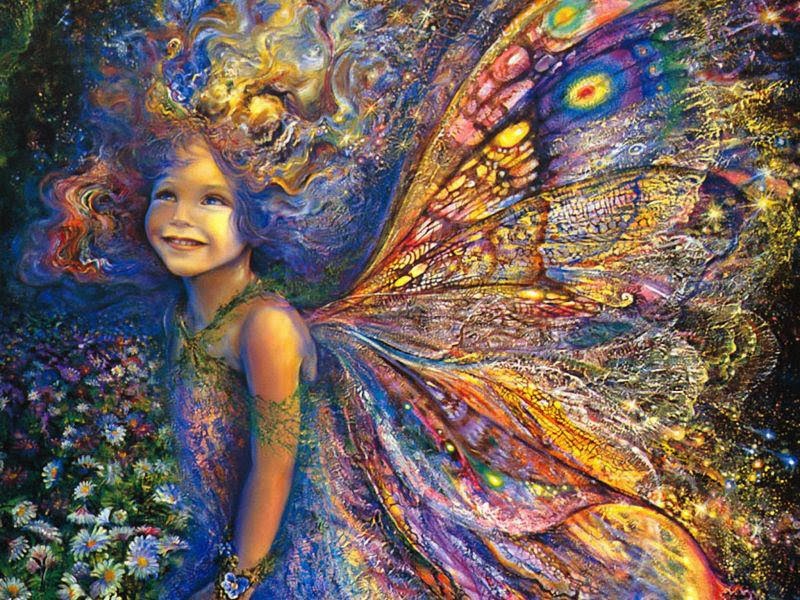


“It is Veil Seven, which is in the volume following this, *Dance of the Seven Veils III*. Yet I cannot resist providing a glance at how this all fits together—these more obvious Veils across reality & the subtler ones beneath & forming them.”
sillymickel.blogspot.com/2023/03/the-wo…
D7V2 52/25

sillymickel.blogspot.com/2023/03/the-wo…
D7V2 52/25


“For at that time, peri-conceptionally (Veil Seven), sperm was the catalyst, but *egg* provided the matter...the resources.”
READ CH> wp.me/p2cSxz-cj #myth #psychology #womb #HolyGrail #birth #immortality #consciousness #mythology #prenatal #primal #symbolism
D7V2 52/26



READ CH> wp.me/p2cSxz-cj #myth #psychology #womb #HolyGrail #birth #immortality #consciousness #mythology #prenatal #primal #symbolism
D7V2 52/26




“The ovum, which is the feminine element, is thus the container, the material, the resources, & the “nourishment” out of which all the rest of us arises.”
THREAD drive.google.com/file/d/1QX_OJ1… #myth #psychology #womb #HolyGrail #birth #immortality #consciousness #mythology
D7V2 52/27
THREAD drive.google.com/file/d/1QX_OJ1… #myth #psychology #womb #HolyGrail #birth #immortality #consciousness #mythology
D7V2 52/27
“Indeed, the massive egg cell...it is the largest cell in the human body & the only one that can be seen with the naked eye...”
THREAD sillymickel.blogspot.com/2023/03/the-wo… #myth #psychology #womb #HolyGrail #birth #immortality #consciousness #mythology #prenatal #primal #placenta
D7V2 52/28



THREAD sillymickel.blogspot.com/2023/03/the-wo… #myth #psychology #womb #HolyGrail #birth #immortality #consciousness #mythology #prenatal #primal #placenta
D7V2 52/28


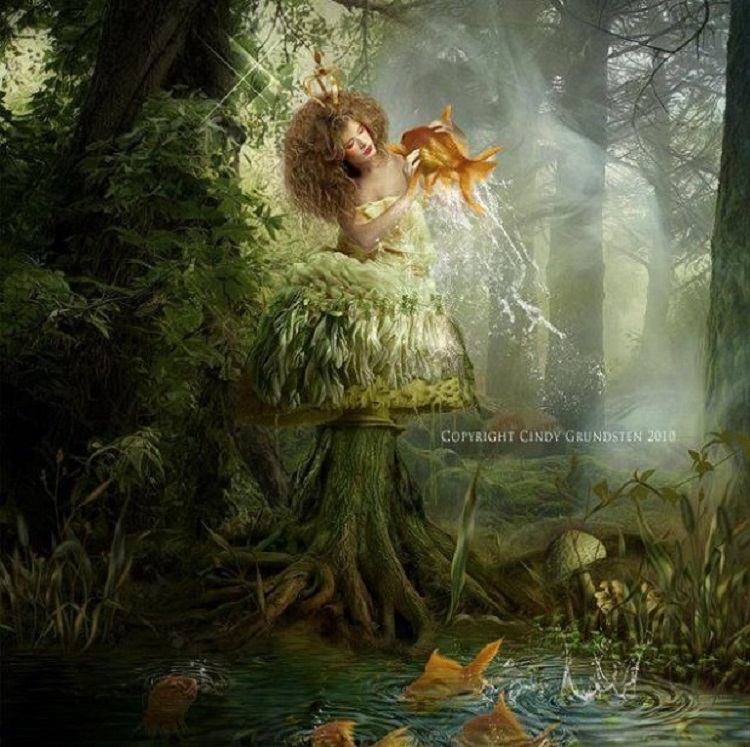

“…[the massive egg cell] is, like the womb later on, the vessel (or cave or abode or container or home) that the sperm, the masculine element, enters so as to spark the entire process.”
READ CH> wp.me/p2cSxz-cj #myth #psychology #womb #HolyGrail #immortality
D7V2 52/29

READ CH> wp.me/p2cSxz-cj #myth #psychology #womb #HolyGrail #immortality
D7V2 52/29


“[The ovum] is container as well as “nourishment,” for an egg is thousands of times bigger than a sperm, by weight. So it is out of the egg’s physical constitution that the zygote, then blastocyst, is constructed.”
THREAD… drive.google.com/file/d/1QX_OJ1… #myth #psychology
D7V2 52/30
THREAD… drive.google.com/file/d/1QX_OJ1… #myth #psychology
D7V2 52/30
“As I like to say, “Sperm is the catalyst, but egg brings home the groceries.” There is more on that in my upcoming works & in *Falls from Grace* (2014) & some of my unpublished manuscripts.”
READ CH… sillymickel.blogspot.com/2023/03/the-wo… #myth #psychology #womb #HolyGrail #birth
D7V2 52/31

READ CH… sillymickel.blogspot.com/2023/03/the-wo… #myth #psychology #womb #HolyGrail #birth
D7V2 52/31


“*The Chalice & the Blood of Christ*”
.
READ &/or dwnld entire CH free AT SITE... wp.me/p2cSxz-cj #psychology #womb #HolyGrail #birth #immortality #consciousness #mythology #prenatal #primal #placenta #symbolism #Eden #perinatal #feminine #BPMI #ovum #women
D7V2 52/32
.
READ &/or dwnld entire CH free AT SITE... wp.me/p2cSxz-cj #psychology #womb #HolyGrail #birth #immortality #consciousness #mythology #prenatal #primal #placenta #symbolism #Eden #perinatal #feminine #BPMI #ovum #women
D7V2 52/32

“Ascending again from the cellular to the level of birth & the womb, we see a parallel symbolism to the Holy Grail going on in Catholicism with its use of & understanding of the meaning of the holy chalice, as employed in its Mass.”
READ/DW CH drive.google.com/file/d/1QX_OJ1…
D7V2 52/33
READ/DW CH drive.google.com/file/d/1QX_OJ1…
D7V2 52/33
“In Catholicism’s primary worship service, called a *Mass*, there is great importance put upon a chalice. A chalice is nearly identical to a grail. They are depicted exactly the same—as an ornate cup, more accurately, goblet.”
READ CH… sillymickel.blogspot.com/2023/03/the-wo… #myth
D7V2 52/34

READ CH… sillymickel.blogspot.com/2023/03/the-wo… #myth
D7V2 52/34
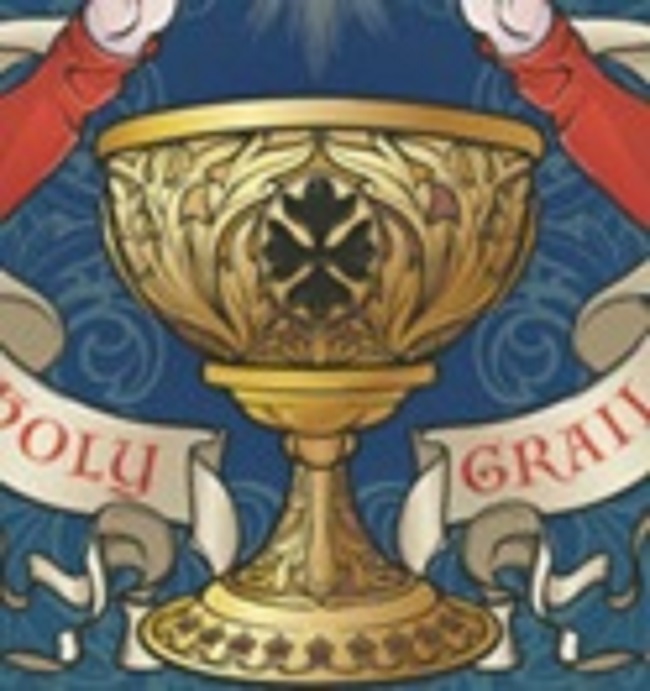

“Indeed, the Holy Grail, as per its legend, was the chalice used by Jesus Christ at the Last Supper; & that chalice is the origin of the use of a chalice in the Mass.”
READ CH… wp.me/p2cSxz-cj #myth #psyche #womb #HolyGrail #birth #immortality #consciousness
D7V2 52/35
READ CH… wp.me/p2cSxz-cj #myth #psyche #womb #HolyGrail #birth #immortality #consciousness
D7V2 52/35
“Sure enough, this holy chalice of the Catholic ritual is used to hold the sacred wine of the ceremony, which is said to be the blood of Christ.”
READ/DWL CH… drive.google.com/file/d/1QX_OJ1… #myth #psychology #womb #HolyGrail #immortality #consciousness #mythology #prenatal
D7V2 52/36
READ/DWL CH… drive.google.com/file/d/1QX_OJ1… #myth #psychology #womb #HolyGrail #immortality #consciousness #mythology #prenatal
D7V2 52/36
“& it is specifically said that it is a source of nourishment, just as was the blood received from the placenta (& mother) thru the umbilical cord when we were in the womb. The words, “Take & eat of me,...eat of my flesh...drink...
READ CH… sillymickel.blogspot.com/2023/03/the-wo…
D7V2 52/37

READ CH… sillymickel.blogspot.com/2023/03/the-wo…
D7V2 52/37


“””[Take & eat of me,...eat of my flesh...drink] of my blood,” are used.”
“Not provocative enough that this holy chalice, like The Grail, is a source of nourishment, but it also has several other prenatal indicators:
READ CH> wp.me/p2cSxz-cj #mythology #womb
D7V2 52/38
“Not provocative enough that this holy chalice, like The Grail, is a source of nourishment, but it also has several other prenatal indicators:
READ CH> wp.me/p2cSxz-cj #mythology #womb
D7V2 52/38
“[this holy chalice has several other prenatal indicators:] It is said to give eternal life...as in, “eat of my flesh, drink of my blood, & you shall live forever.””
THREAD drive.google.com/file/d/1QX_OJ1… #myth #psychology #womb #HolyGrail #birth #immortality #consciousness
D7V2 52/39
THREAD drive.google.com/file/d/1QX_OJ1… #myth #psychology #womb #HolyGrail #birth #immortality #consciousness
D7V2 52/39
“Second, in being a blood that nourishes, it is almost exactly a re-creation of that time in the womb when we depended on the placenta to provide all our nutrients, including oxygen, which came to us via its blood.”
READ CH… sillymickel.blogspot.com/2023/03/the-wo… #myth #psychology
D7V2 52/40

READ CH… sillymickel.blogspot.com/2023/03/the-wo… #myth #psychology
D7V2 52/40


“Do you see how this makes sense of so much that is otherwise odd...if not downright revolting...about some of our sacred ceremonies? Should our rituals & rites not be holy, wholesome, even Pollyannaish instead?”
THREAD wp.me/p2cSxz-cj #myth #psychology #womb
D7V2 52/41


THREAD wp.me/p2cSxz-cj #myth #psychology #womb
D7V2 52/41



“At least I considered it awfully strange, as a child, to be engaged in sacred worship that involved monstrous, cannibalistic, vampire- & werewolf-like components of drinking blood & eating flesh.”
THREAD… drive.google.com/file/d/1QX_OJ1… #myth #psychology #womb #HolyGrail
D7V2 52/42
THREAD… drive.google.com/file/d/1QX_OJ1… #myth #psychology #womb #HolyGrail
D7V2 52/42
“Along the same lines, it makes sense of the emphasis put on blood throughout Christian, especially Catholic, articulations...the “precious blood of Christ,” the Church of the Spilled Blood, the Trail of Blood, & so on.”
READ CH> wp.me/p2cSxz-cj #myth #psyche
D7V2 52/43
READ CH> wp.me/p2cSxz-cj #myth #psyche
D7V2 52/43

“That we need this blood parallels the prenatal as well. For, as I have laid out in detail in “The Prenatal Matrix of Human Events” part of *Wounded Deer & Centaurs*,.."
READ CH… sillymickel.blogspot.com/2023/03/the-wo… #myth #psychology #womb #HolyGrail #immortality #consciousness
D7V2 52/45



READ CH… sillymickel.blogspot.com/2023/03/the-wo… #myth #psychology #womb #HolyGrail #immortality #consciousness
D7V2 52/45



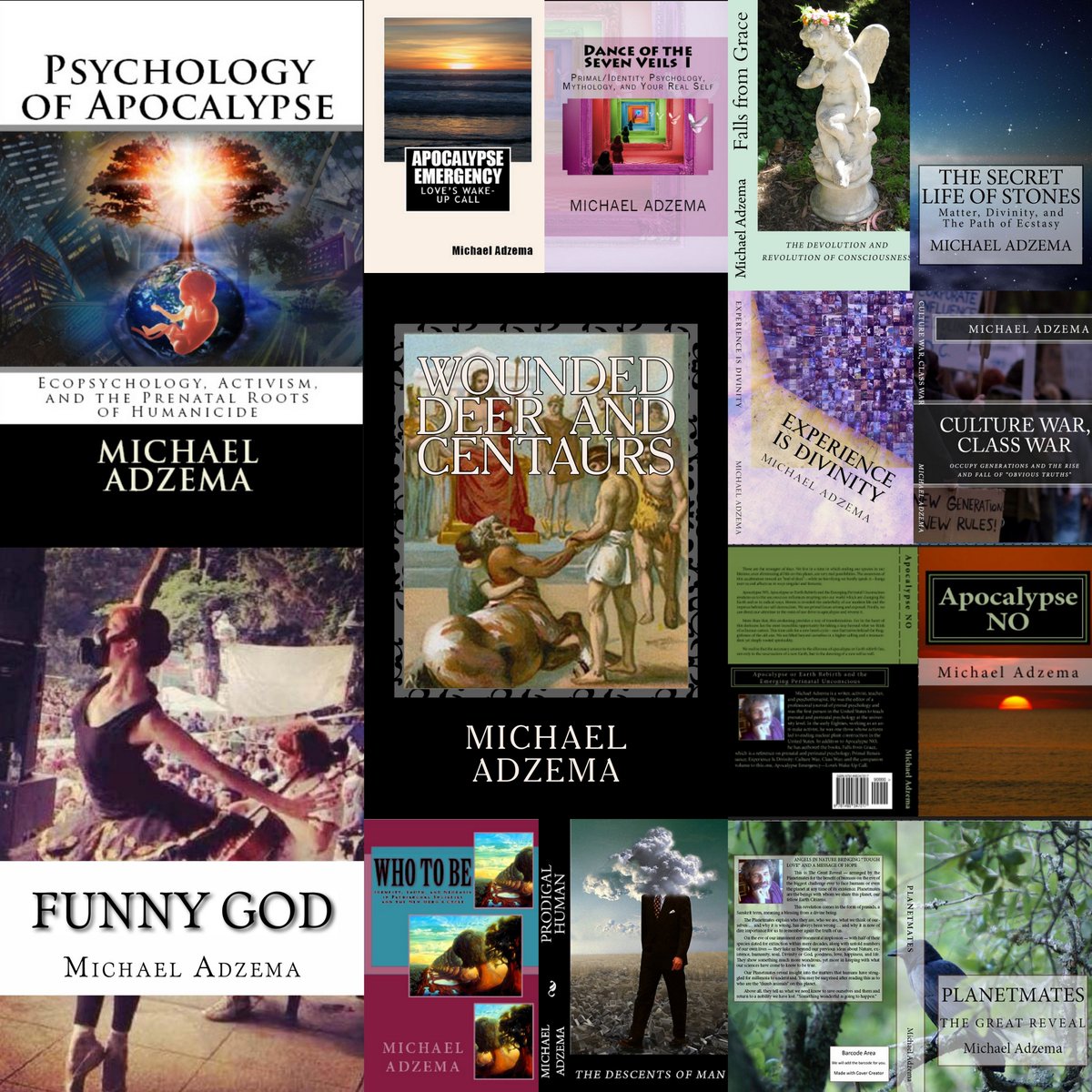
"...as well as in the Prologue of this work—specifically Ch 5 of *Dance of the Seven Veils I*—in the late stages of gestation we undergo a fetal malnutrition which is traumatic in that we feel suffocated & in need of nourishment...”
READ CH… wp.me/p2cSxz-cj
D7V2 52/46



READ CH… wp.me/p2cSxz-cj
D7V2 52/46
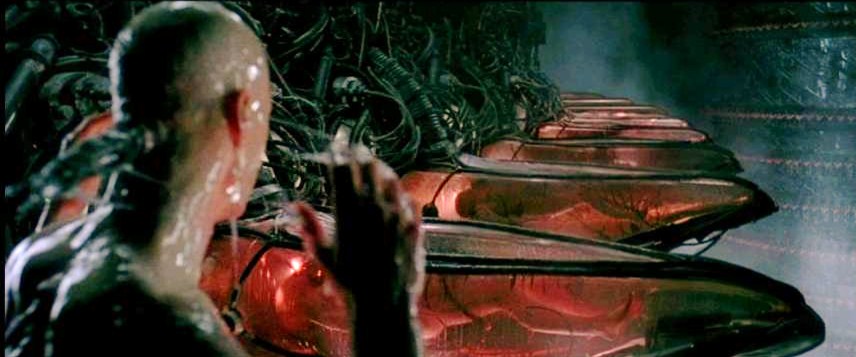



“…sustenance which we are not getting because of the blood flow being reduced because of the constriction of blood vessels leading into & out of the placenta.”
READ/DW CH… drive.google.com/file/d/1QX_OJ1… #myth #psychology #womb #HolyGrail #birth #immortality #consciousness
D7V2 52/47



READ/DW CH… drive.google.com/file/d/1QX_OJ1… #myth #psychology #womb #HolyGrail #birth #immortality #consciousness
D7V2 52/47




“This is so apparent that, indeed, the growth of the fetus slows down from what it had been throughout all the rest of gestation (see accompanying graph):”
READ/DW CH… drive.google.com/file/d/1QX_OJ1… #psychology #womb #HolyGrail #birth #immortality #consciousness #mythology
D7V2 52/48
READ/DW CH… drive.google.com/file/d/1QX_OJ1… #psychology #womb #HolyGrail #birth #immortality #consciousness #mythology
D7V2 52/48

“The prenate is not getting enough nourishment & oxygen to thrive & this actually inhibits our ability to keep growing. That we should still be growing is indicated by the fact that after birth…”
READ CH… wp.me/p2cSxz-cj #myth #psychology #womb #HolyGrail
D7V2 52/49
READ CH… wp.me/p2cSxz-cj #myth #psychology #womb #HolyGrail
D7V2 52/49

“…we then make up for the leveling out, caused by this starvation in the womb, & our growth begins retracing the same arc of development we had in the womb prior to that leveling off caused by starvation & suffocation. (See graph below.)”
… sillymickel.blogspot.com/2023/03/the-wo…
D7V2 52/50

… sillymickel.blogspot.com/2023/03/the-wo…
D7V2 52/50


“In any case, because we have this trauma, throughout our lives we feel this need for nourishment, which is insatiable, for it goes back to the womb.”
READ/DWL CH drive.google.com/file/d/1QX_OJ1… #myth #psychology #womb #HolyGrail #birth #immortality #consciousness #mythology
D7V2 52/51
READ/DWL CH drive.google.com/file/d/1QX_OJ1… #myth #psychology #womb #HolyGrail #birth #immortality #consciousness #mythology
D7V2 52/51
“So, in the Catholic Mass we are actually saying that Christ is the good mother who will give us the blood, the nourishment, that we did not get at the time we needed it in the womb.”
READ CH… sillymickel.blogspot.com/2023/03/the-wo… #myth #psychology #HolyGrail #birth #immortality
D7V2 52/52



READ CH… sillymickel.blogspot.com/2023/03/the-wo… #myth #psychology #HolyGrail #birth #immortality
D7V2 52/52




“Hence, He/she/it will heal this trauma. & since, as I have been saying, connecting with & healing the prenatal trauma brings us back to a realization of our connection with Divinity, which we had in the womb,”
READ CH> wp.me/p2cSxz-cj #myth #psychology #womb
D7V2 52/53

READ CH> wp.me/p2cSxz-cj #myth #psychology #womb
D7V2 52/53


“…& therein there was a knowledge of one’s immortality, in the sense of past lives, then it makes sense that in Christ healing this wound of ours we would indeed live forever.”
THREAD… drive.google.com/file/d/1QX_OJ1… #myth #psychology #womb #HolyGrail #birth #immortality
D7V2 52/54



THREAD… drive.google.com/file/d/1QX_OJ1… #myth #psychology #womb #HolyGrail #birth #immortality
D7V2 52/54




“We already live forever, are immortal; what this is saying is that we would become aware we are.”
READ CH> sillymickel.blogspot.com/2023/03/the-wo… #myth #psychology #womb #HolyGrail #birth #immortality #consciousness #mythology #prenatal #primal #placenta #symbolism #Eden #feminine
D7V2 52/55



READ CH> sillymickel.blogspot.com/2023/03/the-wo… #myth #psychology #womb #HolyGrail #birth #immortality #consciousness #mythology #prenatal #primal #placenta #symbolism #Eden #feminine
D7V2 52/55




“Remember, in *Genesis* it is written “the man is become as one of us, to know good & evil: & now, lest he put forth his hand, & take also of the tree of life, & eat, & live for ever.””
THREAD wp.me/p2cSxz-cj #myth #psyche #womb #HolyGrail #birth #immortality
D7V2 52/59



THREAD wp.me/p2cSxz-cj #myth #psyche #womb #HolyGrail #birth #immortality
D7V2 52/59




“For that you can read that if we heal our prenatal & perinatal pain we become aware of our immortality; hence, we become as one of the gods.”
THREAD… drive.google.com/file/d/1QX_OJ1… #myth #psychology #womb #HolyGrail #birth #immortality #consciousness #mythology #prenatal
D7V2 52/60



THREAD… drive.google.com/file/d/1QX_OJ1… #myth #psychology #womb #HolyGrail #birth #immortality #consciousness #mythology #prenatal
D7V2 52/60


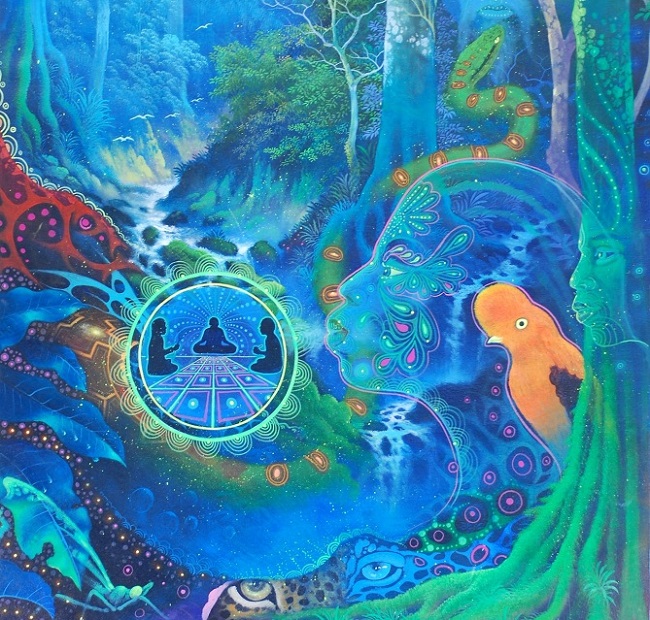
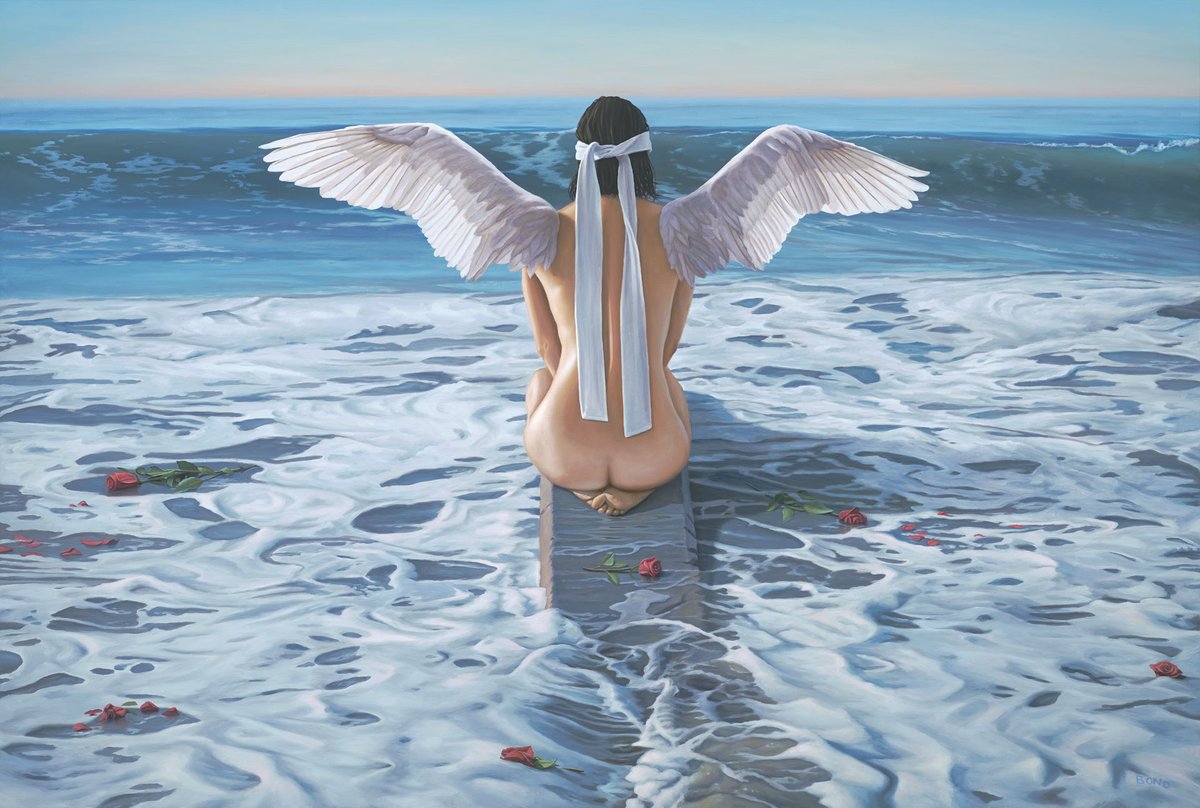
“Additionally, in killing mammalian planetmates—those with red blood—& eating their flesh, that is to say, meat, we have placed ourselves in the spot designated for the gods, the Divine, that of the determination of life & death.”
THREAD sillymickel.blogspot.com/2023/03/the-wo… #myth
D7V2 52/61
THREAD sillymickel.blogspot.com/2023/03/the-wo… #myth
D7V2 52/61

“It would also seem to indicate that we, like Jesus is said to have, can become “one with the Father,” that is, we are of one substance with God. Hence, we are potentially immortal.”
READ CH… wp.me/p2cSxz-cj #myth #psyche #womb #HolyGrail #birth #immortality
D7V2 52/62
READ CH… wp.me/p2cSxz-cj #myth #psyche #womb #HolyGrail #birth #immortality
D7V2 52/62

“I draw out the implications of that a great deal in several others of my works: That we are essentially Divine, & immortal.”
READ &/or dwnld entire CH free AT SITE... drive.google.com/file/d/1QX_OJ1… #psychology #womb #HolyGrail #birth #immortality #consciousness #mythology
D7V2 52/63
READ &/or dwnld entire CH free AT SITE... drive.google.com/file/d/1QX_OJ1… #psychology #womb #HolyGrail #birth #immortality #consciousness #mythology
D7V2 52/63
“By the way, note the polytheism, the collective quality of the Divine indicated with that—become “as one of *us*.””
sillymickel.blogspot.com/2023/03/the-wo… #myth #psychology #womb #HolyGrail #birth #immortality #consciousness #mythology #prenatal #primal #placenta #symbolism #Eden
D7V2 52/64
sillymickel.blogspot.com/2023/03/the-wo… #myth #psychology #womb #HolyGrail #birth #immortality #consciousness #mythology #prenatal #primal #placenta #symbolism #Eden
D7V2 52/64

“Whereas it can be considered there is one God in this tradition, it would seem that it interfaces with us through multiple countenances, much as the images of the four-faced Buddha, the five-faced Shiva, & Janus, from Roman mythology.”
THREAD wp.me/p2cSxz-cj
D7V2 52/65
THREAD wp.me/p2cSxz-cj
D7V2 52/65
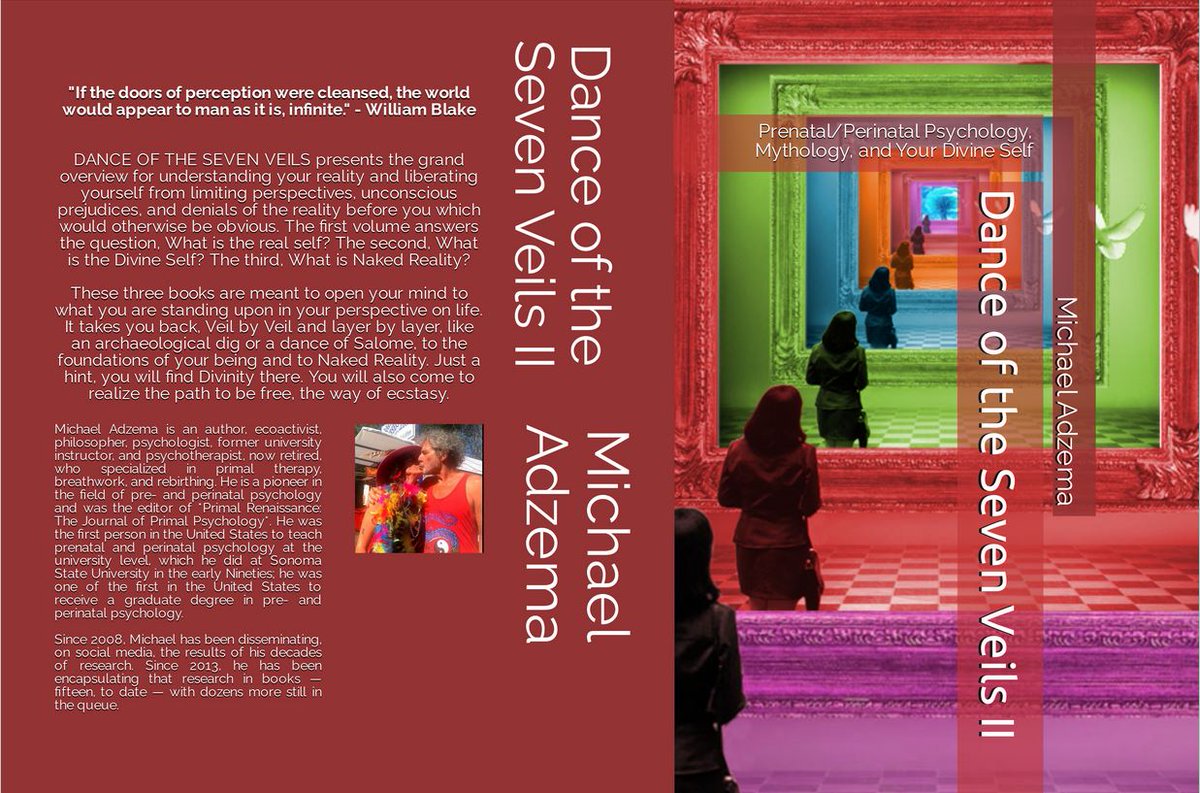
“Interestingly also, Janus, who has two faces, is described as the deity of transitions & beginnings. Which points again to birth.”
READ/DW CH… drive.google.com/file/d/1QX_OJ1… #myth #psychology #womb #HolyGrail #birth #immortality #consciousness #mythology #prenatal #primal
D7V2 52/66
READ/DW CH… drive.google.com/file/d/1QX_OJ1… #myth #psychology #womb #HolyGrail #birth #immortality #consciousness #mythology #prenatal #primal
D7V2 52/66
“Which birth is also a point in time splitting our world into two parts—one, like Janus, facing the past, one the future.”
READ CH… sillymickel.blogspot.com/2023/03/the-wo… #myth #psychology #womb #HolyGrail #birth #consciousness #mythology #prenatal #primal #placenta #symbolism
D7V2 52/67
READ CH… sillymickel.blogspot.com/2023/03/the-wo… #myth #psychology #womb #HolyGrail #birth #consciousness #mythology #prenatal #primal #placenta #symbolism
D7V2 52/67

“The plurality of gods, indicated in *Genesis*, might also be referring to what we are learning about what exists in the No-Form State. We find that it is “populated” with No-Form configurations, No-Form “personalities.””
THREAD wp.me/p2cSxz-cj #myth #psyche
D7V2 52/68
THREAD wp.me/p2cSxz-cj #myth #psyche
D7V2 52/68

“We meet again with them in the afterlife; we might even have interactions with them during life. They are usually folks we know, often relatives, friends; though they might be religious or spiritual personalities or other guides or teachers.”
drive.google.com/file/d/1QX_OJ1…
D7V2 52/69
drive.google.com/file/d/1QX_OJ1…
D7V2 52/69

“Think, for this, of how many primal cultures have beliefs in the supernatural as conveyed through their ancestors, as in aboriginal societies; the grandfathers & grandmothers, of Native American culture;”
THREAD sillymickel.blogspot.com/2023/03/the-wo… #myth #psyche #womb #HolyGrail
D7V2 52/70
THREAD sillymickel.blogspot.com/2023/03/the-wo… #myth #psyche #womb #HolyGrail
D7V2 52/70

“& other family members & personages, from many cultures, who are said to be existing in a reality that exists beyond life & which interacts with life & our personal lives, in particular.”
READ CH… wp.me/p2cSxz-cj #myth #psyche #womb #HolyGrail #immortality
D7V2 52/71


READ CH… wp.me/p2cSxz-cj #myth #psyche #womb #HolyGrail #immortality
D7V2 52/71



“For more on this, see my work, *The Secret Life of Stones* (2016), especially Chapter 32; as well as Part Two of *Funny God* (2015), where I talk about the No-Form State, the coming together of heaven & Earth, & No-Form personalities.”
THREAD drive.google.com/file/d/1QX_OJ1…
D7V2 52/72



THREAD drive.google.com/file/d/1QX_OJ1…
D7V2 52/72




“*Immortality & the Feminine*
“Back again to the Holy Grail, we can go even further in connecting it with our time in the womb & the placenta, which is our interface with our mothers.”
READ CH> sillymickel.blogspot.com/2023/03/the-wo… #myth #psychology #HolyGrail #birth #immortality
D7V2 52/73



“Back again to the Holy Grail, we can go even further in connecting it with our time in the womb & the placenta, which is our interface with our mothers.”
READ CH> sillymickel.blogspot.com/2023/03/the-wo… #myth #psychology #HolyGrail #birth #immortality
D7V2 52/73




“Dan Brown in *The DaVinci Code* (2003), details how the Holy Grail represents the feminine that had been excised from Christianity.”
READ CH… wp.me/p2cSxz-cj #myth #psychology #womb #HolyGrail #birth #immortality #consciousness #mythology #prenatal #primal
D7V2 52/74
READ CH… wp.me/p2cSxz-cj #myth #psychology #womb #HolyGrail #birth #immortality #consciousness #mythology #prenatal #primal
D7V2 52/74

“In his novel, created around the facts of our actual history, Brown states accurately how Christianity devolved from its original beliefs & understandings originating with Christ.”
READ/DWL CH… drive.google.com/file/d/1QX_OJ1… #myth #psychology #womb #HolyGrail #immortality
D7V2 52/75
READ/DWL CH… drive.google.com/file/d/1QX_OJ1… #myth #psychology #womb #HolyGrail #immortality
D7V2 52/75
“For Jesus espoused a rather distinctive “feminine” ethic of peace, love, compassion, mercy,& more. Whereas by the 4th Cent, Christianity had begun to rigidify, to become hierarchical & authoritarian,& to have*extremely patriarchal* elements.”
sillymickel.blogspot.com/2023/03/the-wo…
D7V2 52/76

sillymickel.blogspot.com/2023/03/the-wo…
D7V2 52/76


“These masculine ethics, along with the excision of the feminine, were codified at the First Council of Nicaea, in 325 CE, & its subsequent councils of that era.”
THREAD wp.me/p2cSxz-cj #myth #psychology #womb #HolyGrail #immortality #consciousness #mythology
D7V2 52/77
THREAD wp.me/p2cSxz-cj #myth #psychology #womb #HolyGrail #immortality #consciousness #mythology
D7V2 52/77

“Thus, hundreds of years after Jesus’s death, his embrace of the feminine ethic within us, with its compassion for all living things & its forgiveness, got changed into the opposite of what Christ modeled & taught.”
THREAD… drive.google.com/file/d/1QX_OJ1… #myth #psychology
D7V2 52/78
THREAD… drive.google.com/file/d/1QX_OJ1… #myth #psychology
D7V2 52/78
“In many ways, the patriarchy is our dragon. For it channels us into patriarchal notions—which are different from “matriarchal,” Goddess, or feminine ones—”
READ CH… sillymickel.blogspot.com/2023/03/the-wo… #myth #psyche #womb #HolyGrail #birth #immortality #consciousness #mythology
D7V2 52/79

READ CH… sillymickel.blogspot.com/2023/03/the-wo… #myth #psyche #womb #HolyGrail #birth #immortality #consciousness #mythology
D7V2 52/79


“—& punishes severely those who go against those rigid & conditional values of the male & who embrace the feminine values...the feminine values, which are more aligned with out earlier time in the womb.”
READ CH… wp.me/p2cSxz-cj #myth #psychology #HolyGrail
D7V2 52/80
READ CH… wp.me/p2cSxz-cj #myth #psychology #HolyGrail
D7V2 52/80
“So, the patriarchy is the dragon that must be slain. At this level of personal evolution, in proximity to this Veil of the pre/perinatal, the “damsel” is the BPM I bliss of the first 2 trimesters, which we need to try to recover, or “save.””
drive.google.com/file/d/1QX_OJ1…
D7V2 52/81
drive.google.com/file/d/1QX_OJ1…
D7V2 52/81
“What is tragically wrong in our tradition as it is now construed—corrupted over the 100s of yrs of patriarchal co-opting of the Christ-like feminine—is the way Christ, who in a sense would be the damsel, has been disfigured to be the dragon,”
sillymickel.blogspot.com/2023/03/the-wo…
D7V2 52/82



sillymickel.blogspot.com/2023/03/the-wo…
D7V2 52/82




“….[Christ has been disfigured to be the dragon,] the barrier to prenatal bliss, instead of the prenatal bliss itself. Thus, as many know, Christianity’s initial intent to realign us with the higher values…”
READ CH… wp.me/p2cSxz-cj #myth #psychology #womb
D7V2 52/83
READ CH… wp.me/p2cSxz-cj #myth #psychology #womb
D7V2 52/83

“…& help us to see the world & others thru the joy templates & Divinity “grid” of our earlier prenatal life has been perverted to be that which actually *keeps us* from realizing our blissful, original Self, as we experienced it in the womb.”
drive.google.com/file/d/1QX_OJ1…
D7V2 52/84
drive.google.com/file/d/1QX_OJ1…
D7V2 52/84
“Back to the Grail, however. The Holy Grail, further, brings us immortality in that, as it is said, it is “designed to provide happiness, eternal youth, & food in infinite abundance.””
THREAD sillymickel.blogspot.com/2023/03/the-wo… #myth #psychology #womb #immortality #consciousness
D7V2 52/85

THREAD sillymickel.blogspot.com/2023/03/the-wo… #myth #psychology #womb #immortality #consciousness
D7V2 52/85


“Keep in mind that early Christian teachings included the idea of reincarnation.”
READ &/or dwnld entire CH free AT SITE... wp.me/p2cSxz-cj #psychology #womb #HolyGrail #birth #immortality #consciousness #mythology #prenatal #primal #placenta #symbolism #Eden
D7V2 52/86
READ &/or dwnld entire CH free AT SITE... wp.me/p2cSxz-cj #psychology #womb #HolyGrail #birth #immortality #consciousness #mythology #prenatal #primal #placenta #symbolism #Eden
D7V2 52/86

“Well, compare the concept of having many lives & never truly dying, in other words, reincarnation, to the idea of “live forever” in *Genesis* & “eternal youth” in the myth of the Holy Grail.”
READ/DWL CH… drive.google.com/file/d/1QX_OJ1… #myth #psychology #womb #immortality
D7V2 52/87
READ/DWL CH… drive.google.com/file/d/1QX_OJ1… #myth #psychology #womb #immortality
D7V2 52/87
“Note also that the Grail gives food, which would give happiness to a starving fetus in the womb,by the way.
“These ideas of reincarnation were eliminated, specifically by the 2nd Council of Constantinople of 553 CE.”
THREAD sillymickel.blogspot.com/2023/03/the-wo… #myth #psychology
D7V2 52/88

“These ideas of reincarnation were eliminated, specifically by the 2nd Council of Constantinople of 553 CE.”
THREAD sillymickel.blogspot.com/2023/03/the-wo… #myth #psychology
D7V2 52/88

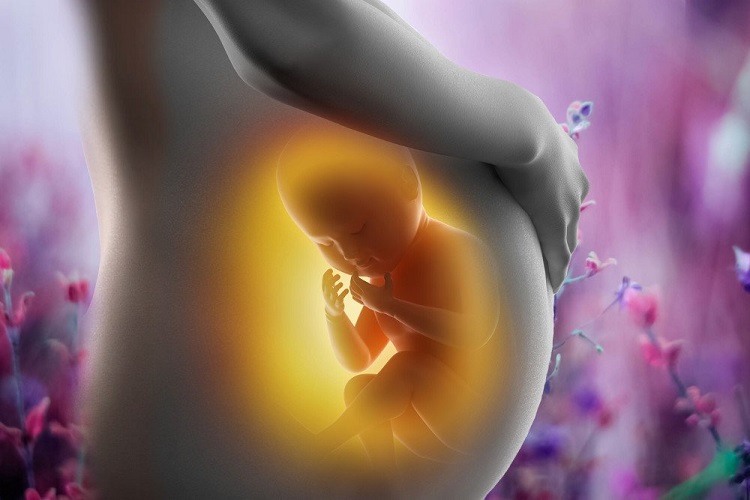
“This, thus, was added to the ongoing excision, over the era of those councils, of the feminine, along with the feminine ethic espoused by Christ, in the creation of the patriarchal ethic which was enshrined by those councils.”
READ CH… wp.me/p2cSxz-cj #myth
D7V2 52/89
READ CH… wp.me/p2cSxz-cj #myth
D7V2 52/89

“& those two are linked—feminine & reincarnation—in that within the vessel of our mothers, the womb, the Holy Grail, we indeed remembered our past lives...”
READ/DWL CH drive.google.com/file/d/1QX_OJ1… #psychology #womb #HolyGrail #birth #immortality #consciousness #mythology
D7V2 52/90
READ/DWL CH drive.google.com/file/d/1QX_OJ1… #psychology #womb #HolyGrail #birth #immortality #consciousness #mythology
D7V2 52/90
“…[inside our mothers,] we remembered we lived forever & that we had “eternal youth.” Moreover, we identified with the feminine, our mothers.”
READ CH> sillymickel.blogspot.com/2023/03/the-wo… #myth #psychology #womb #HolyGrail #birth #immortality #consciousness #mythology #prenatal
D7V2 52/91



READ CH> sillymickel.blogspot.com/2023/03/the-wo… #myth #psychology #womb #HolyGrail #birth #immortality #consciousness #mythology #prenatal
D7V2 52/91




“Yes, you read that correctly. I said the Holy Grail is the womb. If only they’d a known, they could have ceased their looking in the world for that Grail & found it by looking within, far within, to thr memories of being in the womb.”
THREAD wp.me/p2cSxz-cj
D7V2 52/92
THREAD wp.me/p2cSxz-cj
D7V2 52/92

“Which is much like the parable told in the East of the person who traveled all over China looking for his donkey. & then in despair, one day, looking down he noticed he had been riding it all along.”
THREAD drive.google.com/file/d/1QX_OJ1… #myth #psychology #womb #HolyGrail
D7V2 52/93
THREAD drive.google.com/file/d/1QX_OJ1… #myth #psychology #womb #HolyGrail
D7V2 52/93
“Which story is supposed to be a metaphor for the mistake we make in the spiritual quest to find one’s true self, or soul.”
READ &/or DW entire CH free AT SITE... sillymickel.blogspot.com/2023/03/the-wo… #myth #psychology #womb #HolyGrail #birth #immortality #consciousness #mythology
D7V2 52/94



READ &/or DW entire CH free AT SITE... sillymickel.blogspot.com/2023/03/the-wo… #myth #psychology #womb #HolyGrail #birth #immortality #consciousness #mythology
D7V2 52/94


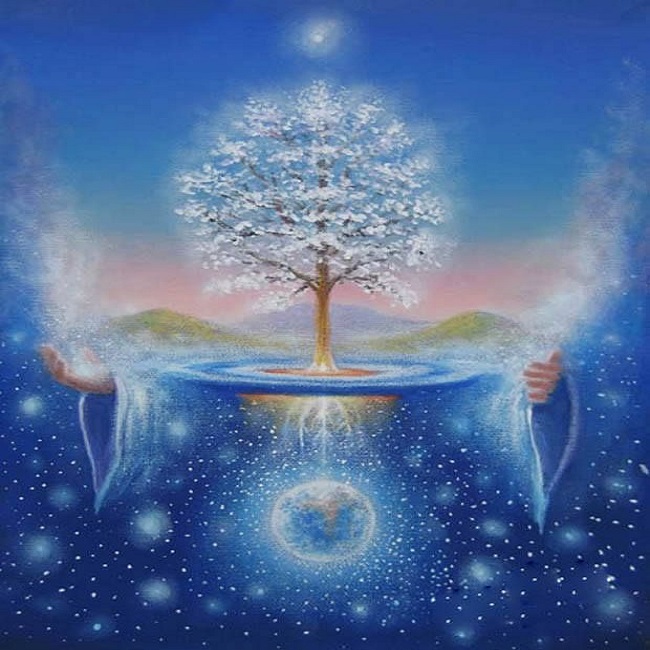

“Thus, at any rate, we encounter the “tree of life,” as well as the Holy Grail, in feeling through to our womb experience, re-membering or reconnecting with that experience.”
READ CH> wp.me/p2cSxz-cj #myth #psychology #womb #birth #immortality #consciousness
D7V2 52/95
READ CH> wp.me/p2cSxz-cj #myth #psychology #womb #birth #immortality #consciousness
D7V2 52/95
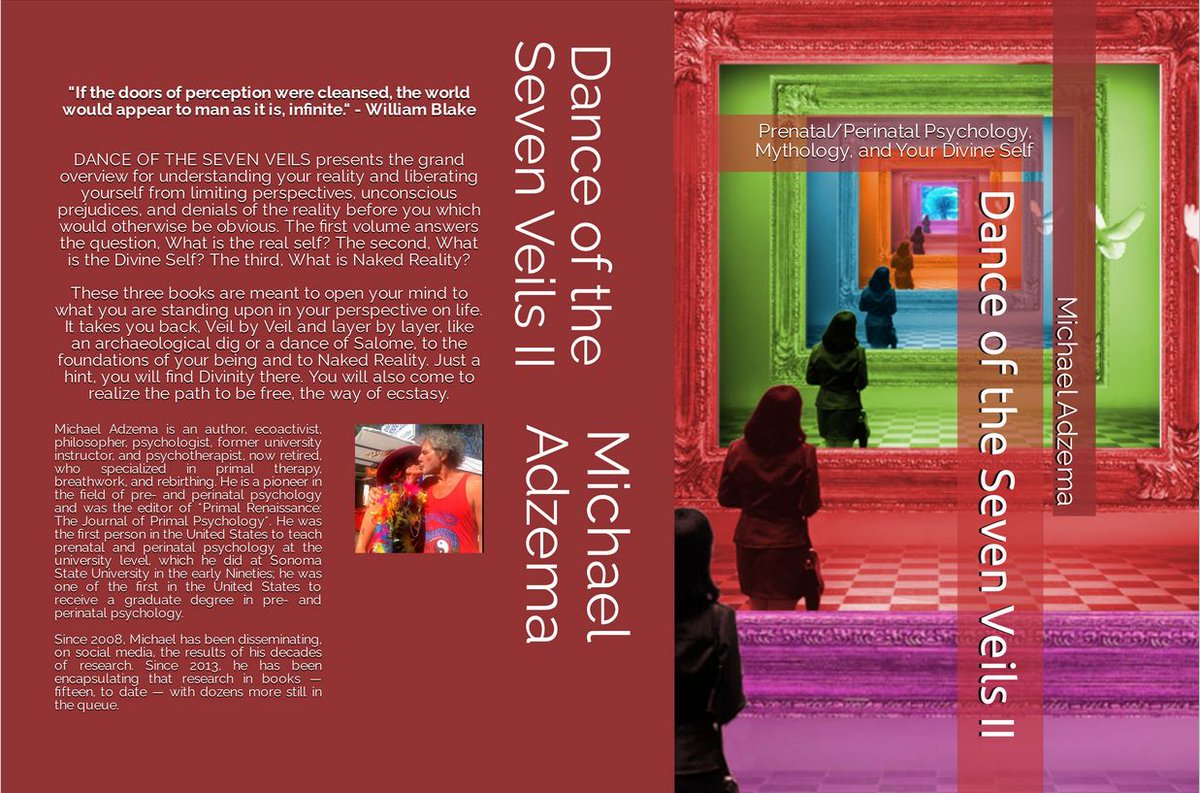
“& this time in our lives was where we were fed by the placenta...that “tree of life”...or that chalice or vessel.
“Now, the reason this would cause us to “live forever” is as so:”
THREAD drive.google.com/file/d/1QX_OJ1… #myth #psychology #womb #HolyGrail #birth #immortality
D7V2 52/96
“Now, the reason this would cause us to “live forever” is as so:”
THREAD drive.google.com/file/d/1QX_OJ1… #myth #psychology #womb #HolyGrail #birth #immortality
D7V2 52/96
“Note that both the Tree of Life & the Holy Grail are said to bring that immortality. In the case of the Holy Grail, it is put that it brings “eternal youth,” which is the same as living forever.”
READ CH… sillymickel.blogspot.com/2023/03/the-wo… #myth #psychology #womb #immortality
D7V2 52/97



READ CH… sillymickel.blogspot.com/2023/03/the-wo… #myth #psychology #womb #immortality
D7V2 52/97




“This would be true in that thru reclaiming our prenatal state & bringing it into our lives, in integrating it, we reconnect with our prenatal bliss, our joy grids, our spiritual grids.”
READ CH> wp.me/p2cSxz-cj #myth #psychology #womb #HolyGrail #immortality
D7V2 52/98
READ CH> wp.me/p2cSxz-cj #myth #psychology #womb #HolyGrail #immortality
D7V2 52/98

“We begin to do that reclamation when we feel back to that time in the womb. & doing so, we discover, indeed, that we *are* immortal, that there is no death—as an ending of consciousness or personality or identity—that truly exists.”
THREAD… drive.google.com/file/d/1QX_OJ1…
D7V2 52/x99
THREAD… drive.google.com/file/d/1QX_OJ1…
D7V2 52/x99
“For it is only with birth, technically just prior to birth in the latest stage of gestation, that we come up with the idea of death. For it is in being confronted with that pre- & perinatal pain that we forget our prenatal state of bliss…”
sillymickel.blogspot.com/2023/03/the-wo…
D7V2 52/100



sillymickel.blogspot.com/2023/03/the-wo…
D7V2 52/100




“…& contentment earlier in our womb experience where, also, we could still remember our past lives & our identity with Divinity & hence, in either case, our immortality.”
THREAD wp.me/p2cSxz-cj #myth #psychology #womb #HolyGrail #immortality #consciousness
D7V2 52/101
THREAD wp.me/p2cSxz-cj #myth #psychology #womb #HolyGrail #immortality #consciousness
D7V2 52/101
“Let us look more closely at the way we create death...and time itself...in the course of the traumas of our perinatal existence.”
READ/DW CH… drive.google.com/file/d/1QX_OJ1… #myth #psychology #womb #HolyGrail #birth #immortality #consciousness #mythology #prenatal #primal
D7V2 52/102
READ/DW CH… drive.google.com/file/d/1QX_OJ1… #myth #psychology #womb #HolyGrail #birth #immortality #consciousness #mythology #prenatal #primal
D7V2 52/102
This has been a thread of the entire Chapter 52,
“The Womb—The Holy Grail”
“Immortality & the Feminine...
“Our Prenatal & Perinatal Experiences Separate Us from Divinity & Predispose Our Motivations, Quests, & Prejudices”
READ CH… sillymickel.blogspot.com/2023/03/the-wo… #myth
D7V2 52/103



“The Womb—The Holy Grail”
“Immortality & the Feminine...
“Our Prenatal & Perinatal Experiences Separate Us from Divinity & Predispose Our Motivations, Quests, & Prejudices”
READ CH… sillymickel.blogspot.com/2023/03/the-wo… #myth
D7V2 52/103




of *Dance of the Seven Veils II* by Michael Adzema
My book is subtitled,
*Prenatal/Perinatal Psychology, Mythology, & Your Divine Self*
*Infant to Prenate, Veils Four-Six*
& it is Vol. 3 in The Path of Ecstasy Series
THREAD wp.me/p2cSxz-cj #myth #psyche
D7V2 52/104
My book is subtitled,
*Prenatal/Perinatal Psychology, Mythology, & Your Divine Self*
*Infant to Prenate, Veils Four-Six*
& it is Vol. 3 in The Path of Ecstasy Series
THREAD wp.me/p2cSxz-cj #myth #psyche
D7V2 52/104

*Dance of the Seven Veils II* by Michael Adzema is to be released in paperback & ebook in March, 2023. This is a complimentary chapter from the book.
THREAD… drive.google.com/file/d/1QX_OJ1… #myth #psychology #womb #HolyGrail #birth #immortality #consciousness #mythology
D7V2 52/105
THREAD… drive.google.com/file/d/1QX_OJ1… #myth #psychology #womb #HolyGrail #birth #immortality #consciousness #mythology
D7V2 52/105
The complete chapter is available online at the links
you can read the ch, posted on the blog, or you can follow the directions there & download a free copy of Ch 52, “The Womb—The Holy Grail” of *Dance of the 7 Veils II* by Michael Adzema
sillymickel.blogspot.com/2023/03/the-wo…
D7V2 52/106



you can read the ch, posted on the blog, or you can follow the directions there & download a free copy of Ch 52, “The Womb—The Holy Grail” of *Dance of the 7 Veils II* by Michael Adzema
sillymickel.blogspot.com/2023/03/the-wo…
D7V2 52/106




This is a pdf copy of Chapter 52, “The Womb—The Holy Grail”
of *Dance of the Seven Veils II*
To read &/or download a copy, click link:
drive.google.com/file/d/1QX_OJ1…?
The book itself, *Dance of the 7 Veils II* will be out in a matter of weeks. This is a sample chapter.
D7V2 52/107
of *Dance of the Seven Veils II*
To read &/or download a copy, click link:
drive.google.com/file/d/1QX_OJ1…?
The book itself, *Dance of the 7 Veils II* will be out in a matter of weeks. This is a sample chapter.
D7V2 52/107

It is time now to regain the primal legacy of belongingness in Divinity & Nature which we lost when we claimed ourselves “crown of creation” & peak of the evolutionary pyramid. This book is a powerful aid in regaining one’s authentic self.
… wp.me/p2cSxz-cj
D7V2 52/108
… wp.me/p2cSxz-cj
D7V2 52/108
“…if we do not regain our truer & underlying humanity, & instead, coming forth as we normally do, we continue acting out of our pain grids, we are not going to have a ‘human’ experience…”
READ CH sillymickel.blogspot.com/2023/03/the-wo… #myth #psychology #womb #birth #immortality
D7V2 52/109



READ CH sillymickel.blogspot.com/2023/03/the-wo… #myth #psychology #womb #birth #immortality
D7V2 52/109



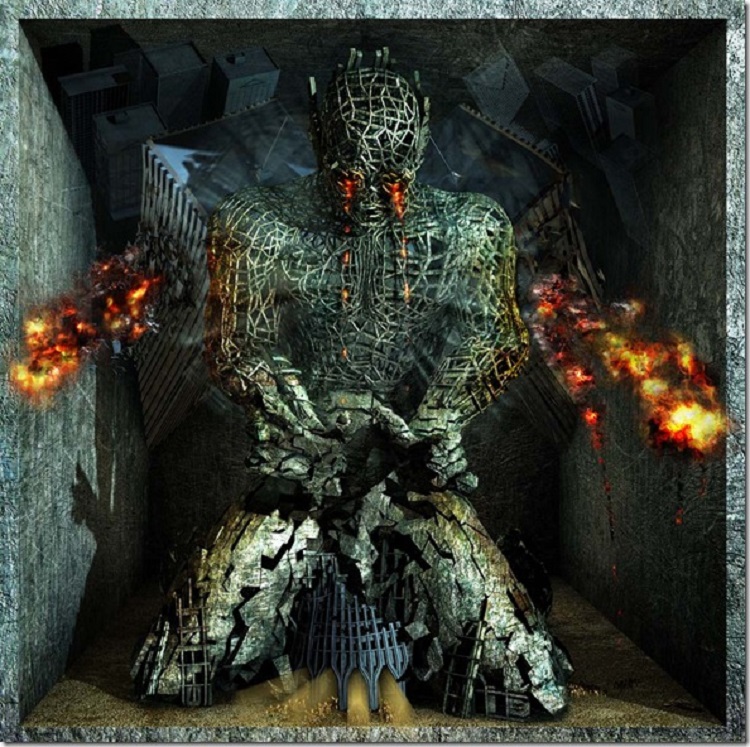
“…or even an Earthly life experience to be detailing & exploring, in the future, let alone people to hear about them.”
READ CH> wp.me/p2cSxz-cj #psychology #womb #HolyGrail #birth #immortality #consciousness #mythology #prenatal #primal #placenta #symbolism
D7V2 52/110
READ CH> wp.me/p2cSxz-cj #psychology #womb #HolyGrail #birth #immortality #consciousness #mythology #prenatal #primal #placenta #symbolism
D7V2 52/110

In looking at these matrices embedded in us through our cellular & womb & birth experiences, it will be possible to have our best chance to get a look at existence outside of these matrices—the No-Form State.
THREAD… drive.google.com/file/d/1QX_OJ1… #myth #psychology #womb
D7V2 52/111
THREAD… drive.google.com/file/d/1QX_OJ1… #myth #psychology #womb
D7V2 52/111
If you like & agree w these ideas & want more attention on them, feel free to download the chapter & pass it around, as you wish; use it to share this perspective
& please send any comments/reviews of the book to me at
sillymickel@yahoo.com
sillymickel.blogspot.com/2023/03/the-wo…
D7V2 52/112



& please send any comments/reviews of the book to me at
sillymickel@yahoo.com
sillymickel.blogspot.com/2023/03/the-wo…
D7V2 52/112




The idea being I might be able to use your comments in describing it in my own sharing on social media.
READ &/or dwnld entire CH free AT SITE... wp.me/p2cSxz-cj #psychology #womb #HolyGrail #immortality #consciousness #mythology #prenatal #primal #placenta
D7V2 52/113
READ &/or dwnld entire CH free AT SITE... wp.me/p2cSxz-cj #psychology #womb #HolyGrail #immortality #consciousness #mythology #prenatal #primal #placenta
D7V2 52/113
@threadreaderapp unroll
#myth #psychology #womb #HolyGrail #birth #immortality #consciousness #mythology #prenatal #primal #placenta #symbolism #Eden #perinatal #feminine #BPMI #ovum #women #Divinity #Genesis #spirituality #patriarchy #reincarnation #HolyChalice #TreeOfLife #tao
#myth #psychology #womb #HolyGrail #birth #immortality #consciousness #mythology #prenatal #primal #placenta #symbolism #Eden #perinatal #feminine #BPMI #ovum #women #Divinity #Genesis #spirituality #patriarchy #reincarnation #HolyChalice #TreeOfLife #tao
• • •
Missing some Tweet in this thread? You can try to
force a refresh










